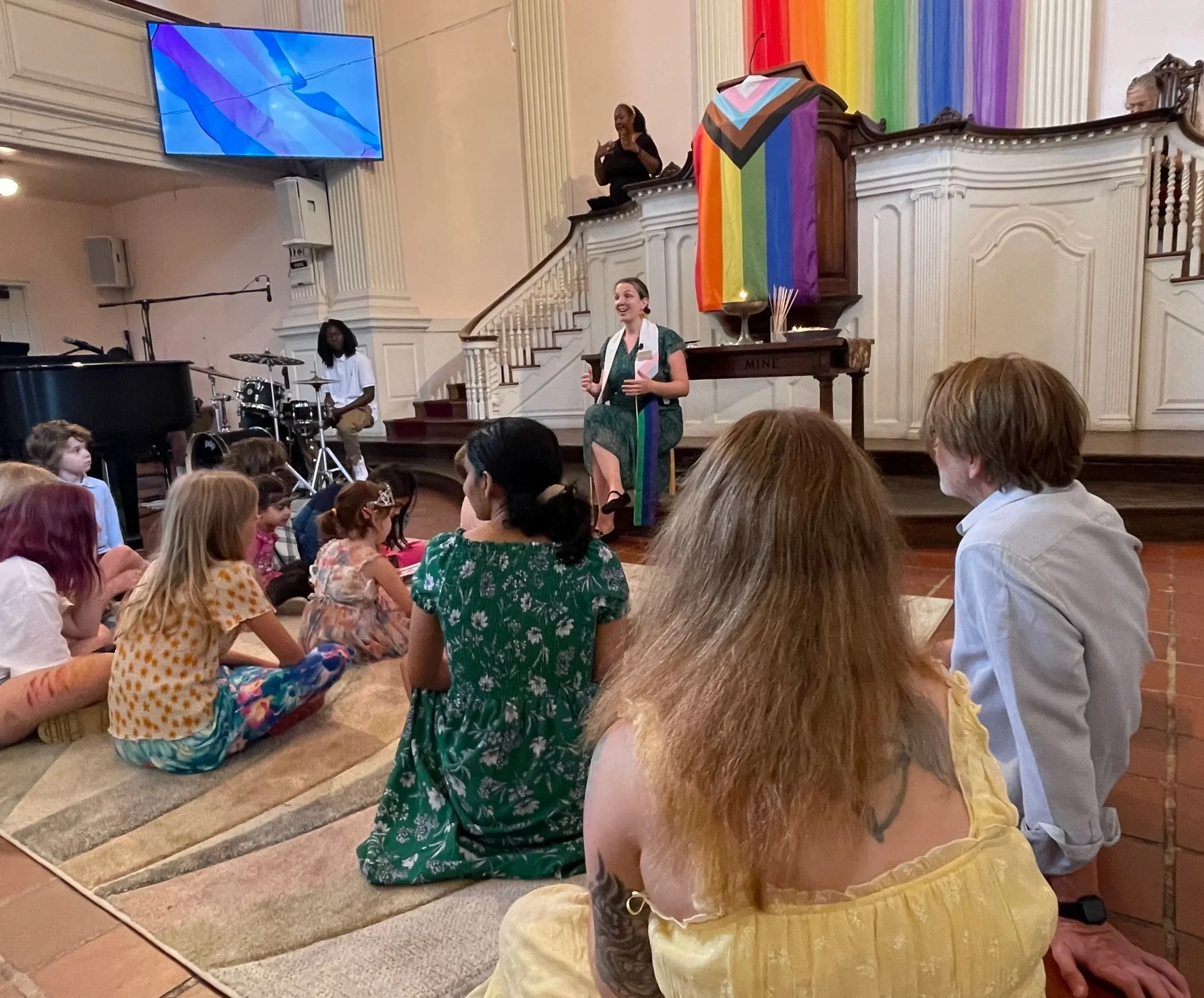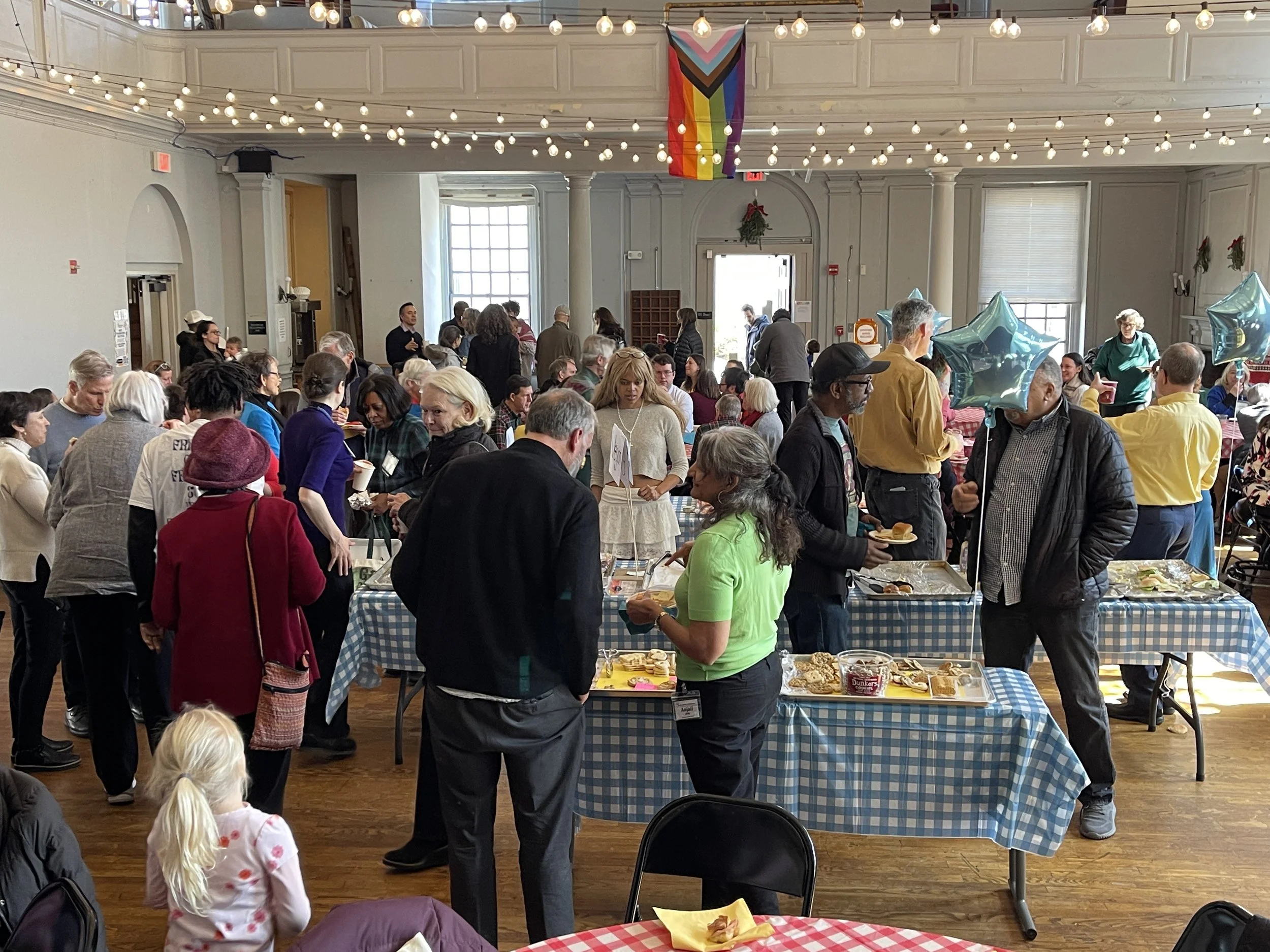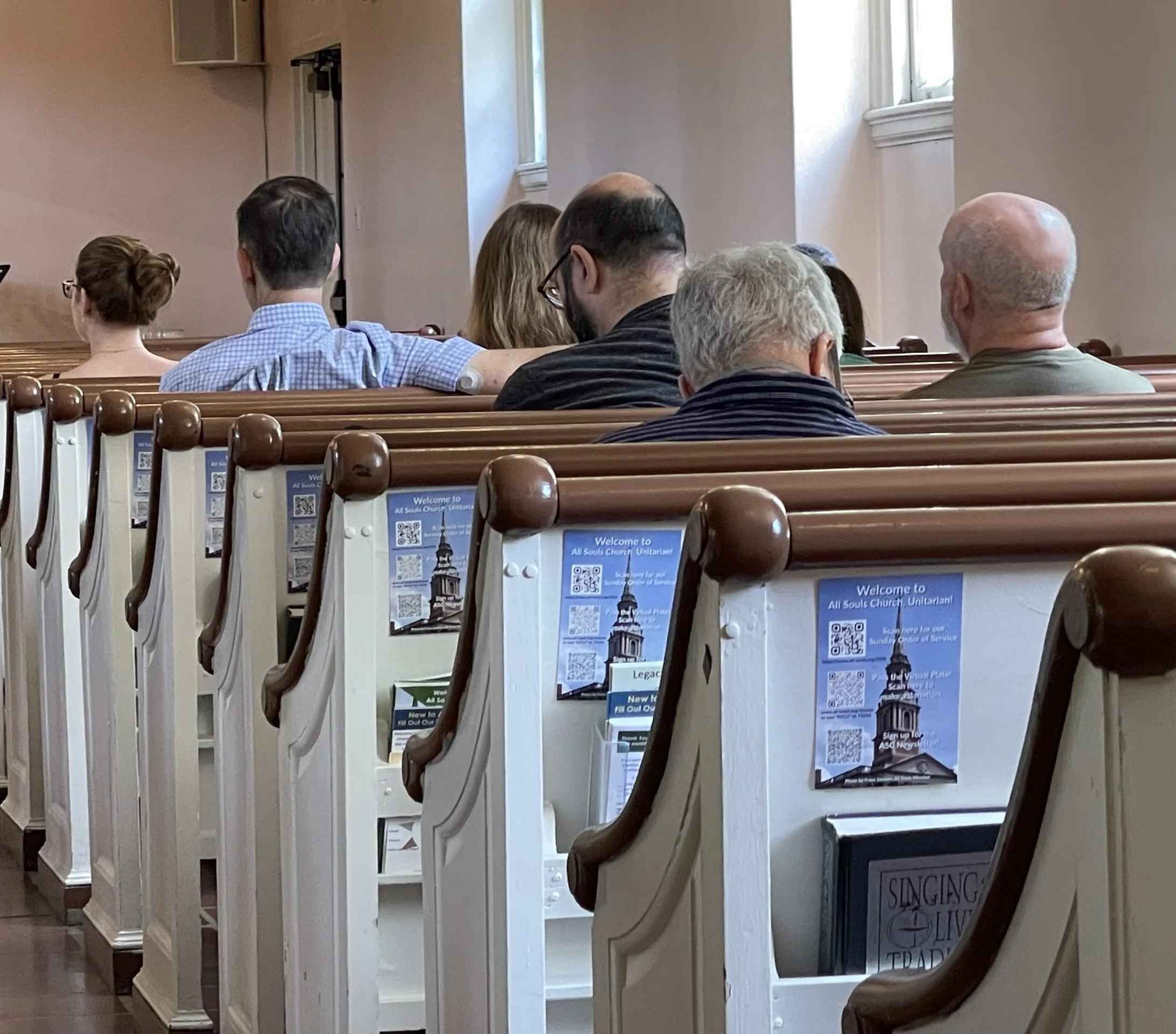
You’ve been looking
for a church like this.
Join a progressive religious community in the heart of Washington, DC.
Time for all ages in the sanctuary during morning worship.

Welcome!
You can find us at the intersection of Mt. Pleasant, Adams Morgan, and Columbia Heights.
We walk diverse paths to find meaning and purpose but are united by our belief in the worth and dignity of all, and the obligation to express our faith through acts of justice and compassion. Join us as we create a diverse, spirit-growing, justice-seeking beloved community that's true to our name, All Souls!
Sharing coffee, tea, and refreshments after the worship service in Pierce Hall.
Worship this Week
She Carried Us: Womanist Wisdom for Survival and Wholeness
Rev. Anastassia Zinke
February 8, 2026, 10:30 AM— This service honors Black History Month through the lens of womanism and womanist theology, honoring the spiritual leadership and moral wisdom of Black women. We will consider persistent inequities including the ongoing crisis in Black maternal health, where Black women are still 3-4 times more likely to die in childbirth than white women. This service invites us to see Black women not only as survivors, but as theologians, healers, and moral leaders. What does justice look like when we truly honor them?
ASL interpretation is available in-person and online.

Stay in Touch
You will receive weekly updates on what's happening and how you can get more involved with activities at the church. We look forward to seeing you around!
What to Expect on Sundays
-
Our community gathers in-person and online (via Zoom). The nursery space opens prior to the service for children ages 5 and under.
-
The worship service begins. Masking is welcome and optional.
Children and youth begin in the sanctuary. Religious education classes are open for children ages 3 - high school. If this is your first Sunday in RE at All Souls ~or~ your child/children are in preschool, kindergarten, or first grade, please escort your child to their classroom and sign them in with their RE volunteer team when the time comes. Learn more about Children and Youth Religious Education.
-
In-Person Fellowship and Coffee Hour. Join us after worship ends to visit with other members of the congregation.
Virtual Coffee Connection. Stay on the Zoom call to visit with the Connecting Souls for social time.
Looking for a Worship Service?
Since 2020, we have maintained an archive of worship services.
Upcoming Events

Find Us
We’re at the heart of DC, at the intersection of Mt. Pleasant, Adams Morgan, and Columbia Heights. A ramp is available from the main entrance (16th St.). You can also enter from the side entrance on Harvard St.
PARKING
All Souls does NOT have a parking lot. During the week, street parking is extremely limited. The best option is to park is the paid DC USA Parking Garage on Irving St NW beneath the Target ($12 for the day).
On Sundays, there is more street parking available. Refer to the signs along the streets for restrictions.
We are also very close to the Yellow and Green metro lines at the Columbia Heights Metro station.
People sitting in the pews on the right side of the sanctuary.


